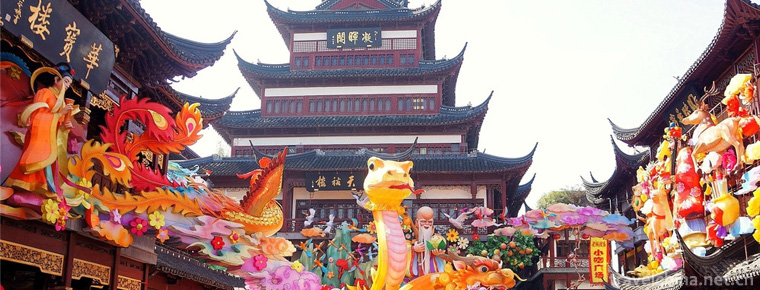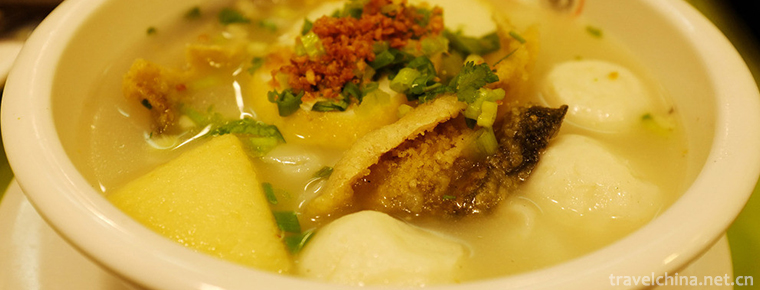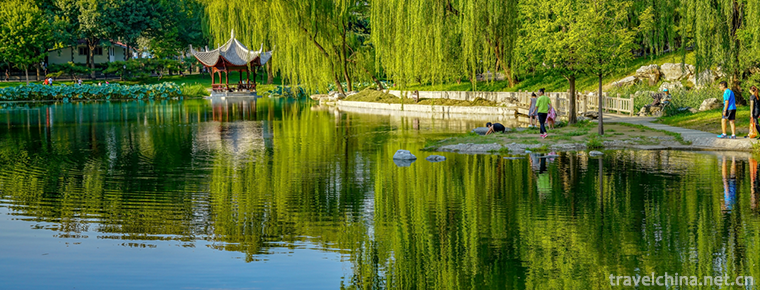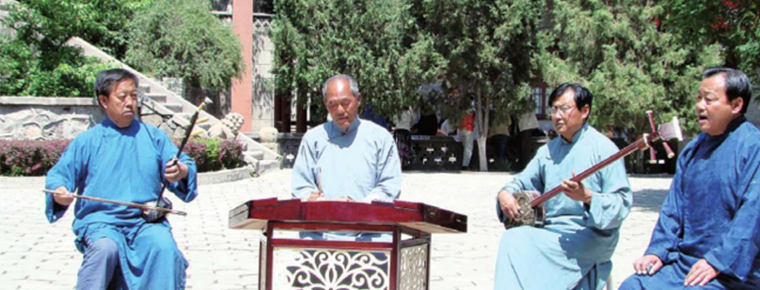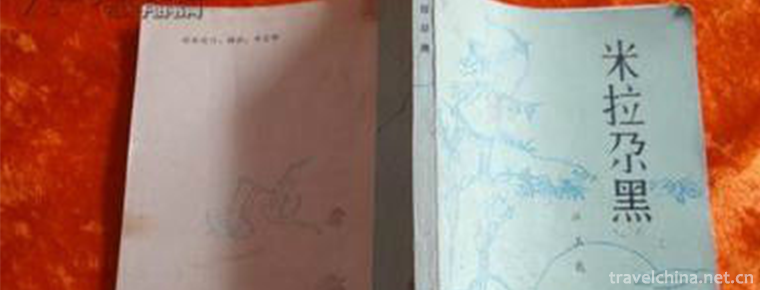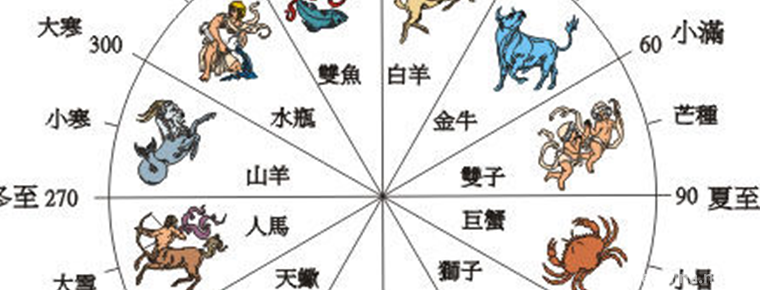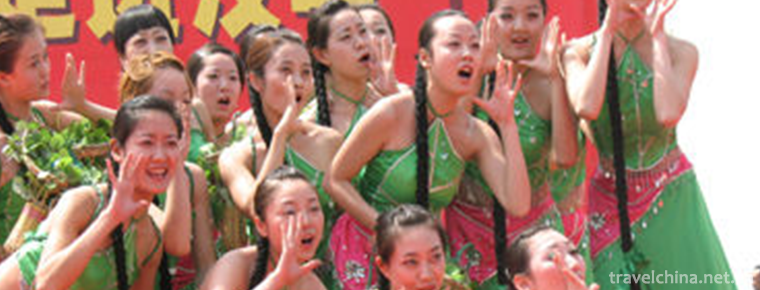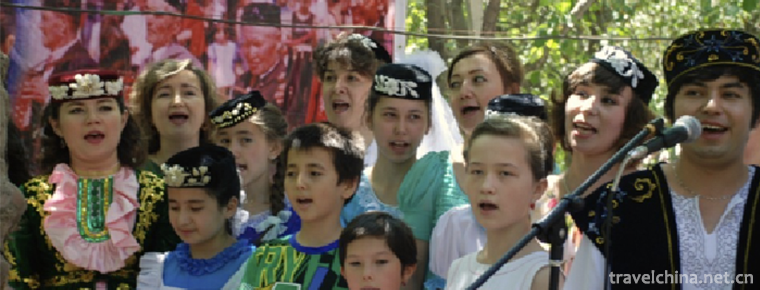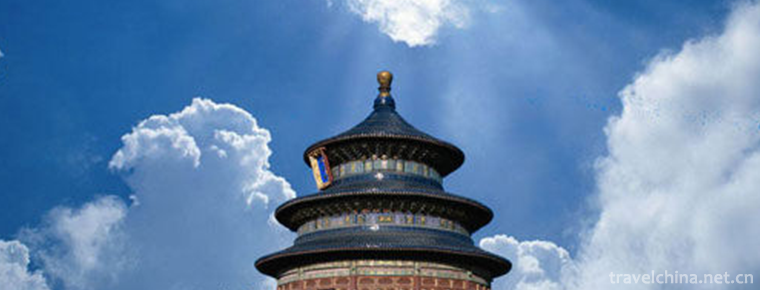Deng Xiaoping
Deng Xiaoping
Deng Xiaoping (August 22, 1904 -1997 February 19th), formerly known as Deng Xiansheng, the scientific name of Deng Xixian, Guang'an, Sichuan. Go to Europe early Work study program After his return, he devoted himself to the revolutionary struggle led by the party for national independence and people's liberation. from Land revolution , Counter-Japanese War reach War of Liberation He has served as a number of important leadership positions of the party and the army for the implementation of a series of major strategic decisions of the Party Central Committee. New democratic revolution The victory and the birth of new China created a great achievement and became People's Republic of China. A founding father of a country
Deng Xiaoping is an outstanding leader recognized by the whole party, the army and the people of all nationalities. He is a great Marx, a great proletarian revolutionist, statesman, strategist, diplomat, a well tested communist fighter, the chief architect of China's socialist reform and opening up and modernization, and the pioneer of socialism with Chinese characteristics. Deng Xiaoping theory The main founder of
He advocated " Reform and Opening-up "And" One country two systems "Policy Philosophy changed China in the late twentieth Century and also affected it. world Therefore, in 1978 and 1985, it was elected two times. times Weekly magazine "the year of the year".
Paul Mauriat's History
Early experience
In August 22, 1904, he was born in Pai Fang village, Xie Xing Township, Guang'an County, Sichuan province. Deng Xian Sheng
In 1909, he went to private schools to study. Deng xxian
In 1910, the association entered the elementary school of Xingxiang.
In 1915, he went to Guang'an County higher primary school to study.
In 1918, I went to Guang'an county middle school to study.
In May 4, 1919, Beijing The outbreak of student masses against imperialism and patriotic movement.
In the autumn of 1919, he was admitted to the Chongqing preparatory school for work study program.
Arrived in October 1920 France Soon, I went to Normandy Bayan men's middle school to study.
In April 1921, he worked as a steel rolling mill at the Schneider iron and steel complex in krousseau. At the end of the month, he quit his job and went to Paris. In late July, the Communist Party of China was founded. In October, Brown's factory was fired and was fired two weeks later.
In February 1922, we entered the Hutchinson rubber factory. In the summer of 1922, Chinese Communist Youth League (next year's reform)
It is known as the European Communist Youth League of China, also known as the China Socialist Youth League Travel Europe Branch.
In the summer of 1923, he took part in the work of the branch of the European Communist Youth League and began his career as a professional revolutionist.
In 1924, he participated in the publication of the organ of the Communist Youth League. Red light The editorial work. In July, he was elected a member of the Executive Committee of the Communist Youth League of China, and was also a member of the Communist Party of China.
In the spring of 1925, he was appointed Commissioner of the European branch of Lyon in the Communist Party of China. From June to September, many Chinese demonstrators and assemblies were held in support of the May 30 anti imperialist movement. In November, we entered the Renault automobile factory as fitter.
In January 17, 1926, Deng Xiaoping first embarked on the Russian territory and headed for the Burapha University in Moscow under the leadership of the representative of the Moscow branch of the Communist Party of China. After only 12 days in the eastern laborer's Communist University, Deng Xiaoping transferred to Zhongshan University in Moscow and was assigned to class seven.
Agrarian Revolution Period
In the spring of 1927, he returned home from the Soviet Union, dispatched by the Chinese Communist Party. feng yu-hsiang Of the national coalition forces. Xi'an Zhongshan military school Work or appointment
Director of political affairs and Secretary of the Communist Party of China.
After the first rupture of the Kuomintang communist cooperation, it was renamed Deng Xiaoping and participated in the emergency meeting of the CPC Central Committee in Wuhan in August 7th. At the end of the year, it moved to Shanghai with the central authorities.
He served as Secretary General of the CPC Central Committee for 1928~1929 years.
At the beginning of 1928, Zhang Xi Get married.
In the summer of 1929, as a representative of the Central Committee, he went to Guangxi to lead the uprising. Deng Bin, the pseudonym, was the same. Zhang Yun Yi It was equal to December and February of next year. the baise uprising and Longzhou Uprising Create The seventh army of the Chinese workers' and peasants' Red Army The Eighth Army and Zuo Jiang. Youjiang revolutionary base area He served as the political secretary of the red seventh army, the red Eighth Army and the Secretary of the former enemy Committee.
In the summer of 1931, he went to the central base of Jiangxi, and served as secretary of the CPC Ruijin county Party committee, Secretary of the Central Committee of the Huichang, and Minister of propaganda of the Jiangxi provincial Party committee.
In May 1933, he was attacked by the "left" route and was revoked. He was punished by the "last serious warning" within the party and visited the South Village of LeAnn county. Soon, he was transferred to the Red Army General Political Department Secretary General. In August, the Red Star newspaper, the chief political department of the Red Army, was edited.
October 1934, with the Central Committee The long march of the Red Army At the end of the year, he was the Secretary General of the CPC Central Committee.
In January 1935, I took part in Guizhou Zunyi The enlarged meeting of the Political Bureau of the CPC Central Committee was held. The conference established the correct leadership of the new Central Committee represented by Mao Zedong. Transfer in June Red Army Propaganda minister of the Ministry of political affairs. On October, the central red army arrived on the long march. Northern Shaanxi
In May 1936, he was deputy director of the Political Department of Ren Hong one army.
The period of Counter-Japanese War
After the outbreak of the war of resistance against Japan, they served as deputy director of the Eighth Route Army of the national revolutionary army.
In January 1938, he served as political commissar of the 129 division of the Eight Route Army and division commander. one of the Ten Great Marshals Opening up the Shanxi Hebei Henan border area in Taihang Mountain Area Counter-Japanese base areas From September to November, we participated in the the sixth Plenary Session of the 6th CPC Central Committee enlargement of the Chinese Communist Party held in Yanan. The plenary session affirmed that we should continue to consolidate and expand the Anti Japanese national united front, and reiterate the principle of the party's independence and independence in organizing the people's armed struggle against Japanese aggression. Make a report on local work at the meeting.
In July 3, 1939, he participated in the enlarged meeting of the Political Bureau of the Central Committee of the Communist Party of China in Yanan. September, same Zhuo Lin Get married and return to Taihang Mountain together.
From August 1940 to December, participation in command Hundred regiments war The hundred regiment war was the largest and strategic offensive campaign against the Japanese army launched by the Eight Route Army in North China.
In April 15, 1941, the party and the Anti Japanese democratic regime were published, explaining the basic theory and policy of the Communist Party of China on the establishment of the Anti Japanese democratic regime.
In September 1942, he was also Secretary of the Taihang sub Bureau of the northern Bureau of the CPC Central Committee.
In October 6, 1943, the northern Bureau of the CPC Central Committee merged with Taihang sub Bureau. The northern Bureau of the CPC Central Committee The Secretary, chaired the work of the eight army headquarters, undertook the overall work of leading the party, government and army in the Anti Japanese base area of the enemy's rear area in North China under difficult conditions.
In 1945 The Seventh National Congress of the Communist Party of China He was elected a member of the Central Committee. In August, Japan Declare surrender. At this time, the Anti Japanese base area led by Liu Baicheng has expanded to four regions, namely Taihang, Taiyue, Hebei, Henan, Henan and Hebei.
The war of Liberation
During the war of liberation, they served as the political secretary of the PLA, the Central Plains field army and the second field army, the Secretary of the Central Bureau of Shanxi Hebei Lu Yu, the Central Plains Bureau and the first Secretary of the East China Bureau.
From September 1945 to November, together with Liu Baicheng, he led the battle of Shangdang and the battle of Handan.
In June 1946, Jiang Jieshi attacked Jiefang District Central Plains and launched a full-scale civil war. From August to January of next year, Liu Baicheng and he organized and commanded the campaigns of Longhai, Dingtao, Juancheng, Huaxian, Ju (wild) gold (Taiwan) fish (township) and so on.
In May 1947, he served as secretary of the Central Plains Bureau of the CPC Central Committee. In June 30th, Liu Baicheng was forced to cross the Yellow River with the main force of the Jin, Hebei, Shandong and Henan field army. Southwest Shandong campaign It opened a prelude to the national strategic offensive of the PLA. In August, the main force of Liu Baicheng's field army was advancing thousands of miles. Dabie Mountains Area. In the heavily armed siege of the Kuomintang army, the Dabie Mountains struggled, and the front line was pushed to the North Bank of the Yangtze River to gain a firm foothold in the Central Plains.
In May 9, 1948, he was the first Secretary of the Central Plains Bureau of the CPC Central Committee and the Central Plains military region. Central Plains Field Army Political commissar. In May, launched with Liu Baicheng. Wan Dong campaign In July, launched with Liu Baicheng. Battle of Xiangfan From September to January of next year, the people's Liberation Army carried out. Liao Shen campaign , Huaihai Campaign , Ping Jin campaign It destroyed the main military force that Jiang Jieshi relied on to maintain his reactionary rule. In November 16th, the Central Military Commission of the CPC decided to be Liu Baicheng. Chen Yi Deng Xiaoping, Su Yu , Tan Zhen Lin Constitute the front Committee, Deng Xiaoping served as secretary, command. Huaihai Campaign The Huai Hai Campaign destroyed 550 thousand Kuomintang troops.
In February 5, 1949, the Central Plains field army was adapted to the second field army and served as a political commissar. In March, he took part in the Communist Party of China in the second Plenary Session of the 7th CPC Central Committee and was the first Secretary of the East China Bureau of the CPC Central Committee. In March 31st, the outline of the Beijing Shanghai Hangzhou campaign was drafted for the General Front Committee. From April to May, commanding officers such as Liu Baicheng and Chen Yi Arrival of a campaign It liberated the vast areas of Nanjing, Shanghai and Jiangsu, Anhui, Zhejiang, Jiangxi and Fujian provinces.
The early days of PRC
In September 30, 1949, at the first plenary session of the Chinese people's Political Consultative Conference, he was elected a member of the Central People's government. Attendance in October 1st founding ceremony In October 19th, at the third meeting of the Central People's Government Committee, he was appointed as a member of the Chinese people's Revolutionary Military Committee. From October to December, Liu Baicheng and others entered the southwest, liberating Sichuan, Kangdian, Yunnan and Guizhou provinces. In November 23rd, he was the first Secretary of the Southwest Bureau of the CPC Central Committee. In December 2nd, he served as vice chairman of the Southwest Military and Political Committee.
In February 22, 1950, he served as a political commissar of the Southwest Military Region. It was the year that led the land reform, bandits, regime building, resumption and development of production in the southwest region.
In 1951, leaders marched. Tibet Work. Tibet is peacefully liberated.
In July 1952, he was transferred to the central government and served as Vice Premier and deputy director of the finance and Economics Commission of the Central People's Government (changed to the State Council in 1954).
In April 1954, he served as Secretary General of the CPC Central Committee and Minister of organization department. In September, he was vice premier of the State Council, vice chairman of the National Defense Commission and member of the Central Military Commission of the CPC Central Committee.
On March 1955, at the National Congress of the Communist Party of China, the Central Committee made a report on the alliance of Gao Gang and Rao Shu Shi to oppose the party. In April, in the fifth Plenary Session of the 7th CPC Central Committee, the CPC was elected as a member of the Political Bureau of the CPC Central Committee.
In September 1956 The Eighth National Congress of the Communist Party of China The report on Revising the party constitution. In the first Plenary Session of the 8th CPC Central Committee, he was elected a member of the Political Bureau of the CPC Central Committee, the Standing Committee of the Central Political Bureau and the general secretary of the Central Secretariat. He became an important member of the first generation of the leading collective of the Communist Party of China at the core of Mao Zedong.
In November 1957, the Chinese party and government delegation headed by Mao Zedong visited the Soviet Union. October revolution 40th anniversary celebrating the general assembly, the Communist Party of China and the workers' Party Representatives' meeting.
In August 1958, he was present at the Political Bureau of the CPC Central Committee. Peitaiho The enlarged meeting was held. The conference made a resolution on the establishment of a people's commune in rural areas. From September to November, Heilongjiang , Jilin , Liaoning Guangxi, Yunnan And Guizhou, Sichuan and other places. From November to December, the CPC in Wuchang held a statement on the resolution of several issues concerning the people's commune in the sixth Plenary Session of the 8th CPC Central Committee.
In September 1959, he was a standing member of the Central Military Commission of the CPC.
From November 1960 to December, Liu Shaoji and Chinese party and government delegations participated in the Soviet Union. Moscow The 43rd anniversary celebration of the October revolution and the 81 representatives of the Communist Party and workers' party were held.
From August 1961 to September, he attended the working conference of the Central Committee of the Communist Party of China in Mount Lu.
In February 6, 1962, at the enlarged central working conference (also known as the "seven thousand person conference"), we stressed the need to carry forward the party's revolutionary tradition and strengthen it. Democratic centralism
In July 1963, the delegation of the Communist Party of China went to Moscow to hold talks with the Communist Party of the Soviet Union, and resolutely safeguard the CPC's principle of independence and autonomy.
In March 1965, Jiang Qing And other critics of the literary circles and literary works criticize severely at the meeting of the Central Secretariat.
In the 10 years since he was general secretary of the Central Secretariat, he helped the chairman and vice chairmen of the Central Committee in charge of the daily work of the Central Committee, and made fruitful efforts for the establishment and development of the socialist system and for the exploration of a socialist road suitable for China's national conditions.
Cultural Revolution
In May 1966, " The Great Proletarian Cultural Revolution Let's start. Soon, it was criticized and downed by mistake.
Lose all positions.
In 1969~1973 years, we put it to work in a tractor repair plant in Xinjian County, Jiangxi province.
In August 3, 1972, he sent a letter to Mao Zedong, hoping to do more work for the party and the state for several years. Mao Zedong's instructions affirmed Deng Xiaoping's historical achievements.
In March 10, 1973, the Central Committee of the Communist Party of China made the decision on restoring Comrade Deng Xiaoping's party organization life and vice premier of the State Council. In August, at the Tenth National Congress of the Communist Party of China, he was elected a member of the Central Committee. In December, according to the decision of the Central Committee of the Communist Party of China, members of the Political Bureau of the CPC Central Committee and members of the Central Military Commission.
On behalf of the Chinese government at the sixth special session of the United Nations in April 1974, Mao Zedong systematically expounded the theory of three worlds division.
In January 1975, he was vice chairman of the CPC Central Committee, vice premier of the State Council, vice chairman of the Central Military Commission and chief of the general staff of the Chinese people's Liberation Army. After Zhou Enlai was seriously ill, with the support of Mao Zedong, he presided over the daily work of the party, the state and the army. He made a comprehensive rectification of the chaos caused by the "Cultural Revolution" and won the heartfelt support of the whole nation.
In April 1976, a "Tiananmen incident" which mourned Premier Zhou Enlai, supported Deng Xiaoping and opposed the gang of four, was revoked in Beijing.
In October 1976, the gang of four was smashed and the "Cultural Revolution" ended.
Re emergence
In April 10, 1977, I sent a letter to the Central Committee of the Communist Party of China and proposed that we must guide the whole party, the whole army and the whole nation with accurate and complete Mao Zedong thought. The CPC Central Committee approved the letter and affirmed Deng Xiaoping's opinion. In May 24th, when talking with the two responsible persons of the Central Committee, we pointed out that "two ordinary" (that is, "all decisions made by Chairman Mao, we firmly uphold, Chairman Mao's instructions, we have consistently followed") do not conform to Marx doctrine; we must create a kind of air in the party, respect knowledge and respect talents.
In July 1977, the Communist Party of China resumed its former party, government and military leadership in the third Plenary Session of the 10th CPC Central Committee. Speaking at the meeting, Deng Xiaoping pointed out that it is the most fundamental thing for Mao Zedong to advocate a comprehensive and accurate understanding of Mao Zedong thought, mass line and seeking truth from facts.
On August 1977, the Eleventh National Congress of the Communist Party of China was elected vice chairman of the Central Committee of the Communist Party of China. From August to September, a number of symposiums were held, emphasizing that science and education were not pursued. Four modernizations There is no hope. Leading and promoting the rectification of science and technology and education fronts.
In March 1978, he was elected chairman of the Fifth National Committee of the Chinese people's Political Consultative Conference. He first pushed the ideological line out of chaos and opposed " Two Whatevers "Wrong policy", leading and supporting the discussion on the issue of truth standard, and putting forward a comprehensive and accurate understanding. Mao Zedong thought He also proposed to shift the focus of the work of the whole party to economic construction as soon as possible.
Period of reform and opening up
In December 1978, the Communist Party of China opened in the third Plenary Session of the 11th CPC Central Committee, opening up a new era of China's reform and opening up and concentrating its efforts on socialist modernization. At this meeting, he played a decisive role in the historical transformation of the CPC's policies. At the central working conference for the plenary session, he published Emancipate the mind, seek truth from facts, unite and look forward. Speech. After this plenary session, the second generation of the Communist Party of China led by him was formed.
From January 28, 1979 to February 6th, the formal visit to the United States after the formal establishment of diplomatic relations between China and the United States was the first time that the leaders of new China visited the United States.
In September 1980, he resigned as vice premier of the State Council.
In June 1981, the CPC adopted the drafting of Deng Xiaoping in the sixth Plenary Session of the 11th CPC Central Committee. Resolutions on some historical issues of the party since the founding of the people's Republic of China " The resolution completely negated the "Cultural Revolution", comprehensively evaluated Mao Zedong's historical status, and put forward that we must uphold and develop Mao Zedong's thought. Deng Xiaoping was elected chairman of the Central Military Commission.
In September 1982, the twelve National Congress of the Communist Party of China was held. In his opening speech, he put forward: "combine the universal truth of Marx with the concrete practice of our country, go our own way and build socialism with Chinese characteristics."
In from September 12 to 13, 1982, the Chinese Communist Party held in the first Plenary Session of the 12th CPC Central Committee, elected Deng Xiaoping as the Standing Committee of the Political Bureau of the CPC Central Committee and decided to become chairman of the Central Military Commission. In September 13th, at the first plenary session of the Central Advisory Committee of the CPC, he was elected the director of the Central Advisory Committee. September 24th, meet Britain prime minister Mrs. Thatcher It sets forth the basic position of China on the Hongkong issue and sets the tone for future negotiations between the two governments.
On June 1983, at the first session of the Sixth National People's Congress, he was elected chairman of the Central Military Commission of the People's Republic of China.
In October 1, 1984, we reviewed the troops and spoke at the 35th anniversary celebration ceremony in People's Republic of China. In December 19th, he attended the signing ceremony of the joint declaration of the Chinese and British governments on the Hongkong issue.
In June 4, 1985, at the enlarged meeting of the Central Military Commission, the Chinese government decided to reduce the number of military personnel by 1 million, and expounded two important changes in the international situation and the foreign policy after the third Plenary Session of the 11th CPC Central Committee.
In March 5, 1986, the four scientists put forward a suggestion on tracking the world's high technology development: "this proposal is very important and can not be delayed". In November, the CPC Central Committee and the State Council approved the outline of the high technology research and development plan. 863 plan
From January 1987 to March, aiming at the disturbance of a few students in some institutions of higher learning at the end of 1986, many talks pointed out that we should strengthen the four cardinal principles education, take a clear-cut stand against bourgeois liberalization, and conduct socialist construction in a leading and orderly way. In April 13th, he attended the signing ceremony of the joint declaration of the Chinese and Portuguese Governments on the Macao issue. In November, according to the CPC's decision in the first Plenary Session of the 13th CPC Central Committee, it was appointed chairman of the Central Military Commission.
In April 1989, in response to the upheaval in Beijing, the two time a speech was made, which fully endorsed and supported the Standing Committee of the Political Bureau of the CPC Central Committee on the decision to quell the turmoil and stabilize the situation. It advocates a clear-cut opposition to unrest. On May 16th, he met with the chairman of the Soviet Union's Supreme Soviet Bureau and Gorbachev, general secretary of the Soviet Communist Party, and declared the normalization of Sino Soviet relations. In June 9th, he received an important speech from the army cadres above the martial law unit of the capital. He pointed out that the incident broke out and led to a calm consideration of the past and the future. There is nothing wrong with the basic line of the party's "one center, two basic points" and the series of principles and policies formulated since the third Plenary Session of the 11th CPC Central Committee, including the strategic objectives of reform and opening up and trilogy. In the future, we must continue to unswervingly follow suit. In June, the Chinese Communist Party held the election of Jiang Zemin as general secretary of the Central Committee in the fourth Plenary Session of the 13th CPC Central Committee.
On November 1989, in the fifth Plenary Session of the 13th CPC Central Committee, he resigned as chairman of the Central Military Commission.
On March 1990, the third session of the Seventh National People's Congress accepted Deng Xiaoping's resignation as chairman of the Central Military Commission of the People's Republic of China.
Southern inspection
From January 1991 to February, he inspected Shanghai. Speaking with the responsible person of Shanghai municipality, he suggested that we should speed up the development of Pudong and never shake it until it was completed. We hope that the people of Shanghai will be more emancipated and more daring.
From January 1992 to February, it was important to visit Wuchang, Shenzhen, Zhuhai and Shanghai.
This paper analyzes the international and domestic situation, summarizes the basic practice and basic experience of the party since the third Plenary Session of the 11th CPC Central Committee, and clearly answers many important problems that often puzzle and restrain people's minds. In October, the Communist Party of China convened the Fourteenth National Congress. The conference decided that the goal of economic restructuring is to establish a socialist market economic system and put forward the strategic task of arming the whole party with Deng Xiaoping's theory of building socialism with Chinese characteristics. Marked by this talk and the 14th National Congress of the Communist Party of China, China's reform and opening up and modernization drive have entered a new stage.
In November 2, 1993, Selected works of Deng Xiaoping The third volume is published. The Central Committee of the Communist Party of China held a report on the third volume of Deng Xiaoping's anthology, and Jiang Zemin delivered an important speech.
In November 2, 1994, the revised Deng Xiaoping Anthology (1938 to 1965) and Deng Xiaoping's literary selections (1975 - 1982) were renamed the first volume and second volume of Deng Xiaoping's anthology.
The Fifteenth National Congress of the Communist Party of China, held in 1997, generalizes the theory of building socialism with Chinese characteristics to Deng Xiaoping theory. It points out that this theory is contemporary Chinese Marx doctrine and a new stage of the development of Marx doctrine in China, and clearly stipulates in the party constitution that the Chinese Communist party takes Marx Lenin's theory, Mao Zedong thought and Deng Xiaoping theory as its guide to action.
Great men die
He died in Beijing at the age of 93 in February 19, 1997.
Character contribution
After the founding of new China, Deng Xiaoping led the construction of political power, social transformation and economic recovery in the southwest region, and soon participated in the work of the central leadership. He served as Secretary General of the CPC Central Committee and member of the Political Bureau of the CPC Central Committee. On the the first Plenary Session of the 8th CPC Central Committee of the party, he was elected General Secretary of the Political Bureau of the CPC Central Committee and general secretary of the Central Secretariat. Mao Zedong The important members of the first generation of the central collective leadership at the core have made significant contributions to the strengthening and improvement of the party's construction. After the cultural revolution, he served as vice chairman of the CPC Central Committee. Vice Premier of the State Council of the People's Republic of China , The Central Military Commission of the Communist Party of China The vice chairman and chief of the general staff of the Chinese people's Liberation Army presided over the daily work of the party, the state and the army. Soon, because of the tit for tat struggle with the gang of four, he was wrongly dismissed and criticized again.
Bring order out of chaos
After smashing the gang of four and ending the "Cultural Revolution", Deng Xiaoping resumed his work and started from the correct ideological line. Bring order out of chaos The emphasis is on seeking truth from facts. Mao Zedong thought The essence of it is a clear-cut opposition. Two Whatevers The wrong viewpoint supports and leads the discussion on the issue of the criterion of truth. CCP held in December 1978 The Third Plenary Session of the Eleventh Central Committee It opened up a new era for China's reform and opening up and concentrating its efforts on socialist modernization.
Deng Xiaoping made a report on "emancipating the mind, seeking truth from facts, and looking forward to unity and unity". He stressed that emancipating the mind is a major political issue. We must break Lin Biao and the gang of four to launch forbidden zones and prohibitions, create superstitious fossilization, and liberate people's minds from the imprisonment of false Marx.
For the first time, he put forward the view that "in order to protect the people's democracy, we must strengthen the rule of law, make democracy institutionalized and legalized, and change the system and law not because of leaders' change, but not because of the change of leaders' opinions and attention." we propose that we should allow some areas, some enterprises and some workers and peasants to get rich first so as to drive other regions, other enterprises and others to make the people of the whole country more prosperous.
Under the leadership of Deng Xiaoping, The Third Plenary Session of the Eleventh Central Committee The wrong line of "taking class struggle as the key link" has been abandoned, and the political line of the focus of the work of the whole Party and the attention of the whole nation to the socialist modernization drive has been determined. The economic management system and management methods should be seriously re formed, and conscientiously solve the phenomenon of dividing the party and the government, dividing the government and enterprises, replacing the party with the government, and replacing the enterprises with the government.
Reform and Opening-up
After the the third Plenary Session of the 11th CPC Central Committee, he persisted in emancipating the mind and seeking truth from facts. He founded and developed the theory of building socialism with Chinese characteristics. This theory scientifically expounds the essence of socialism, and for the first time systematically answers a series of basic questions on how to build socialism and how to consolidate and develop socialism in such a backward country. He believes that China is at the primary stage of socialism, and we must make plans based on this reality. According to his thought, the Thirteenth National Congress of the Communist Party of China formulated the basic line of the party's economic development at the primary stage of socialism, adhering to the four cardinal principles and persisting in reform and opening up. He pointed out that the fundamental task of socialism is to develop productive forces. The whole party should wholeheartedly pursue modernization. The key to modernization is the modernization of science and technology. Science and technology are the primary productive forces. Education is the most fundamental cause of a nation. He designed the strategic goal of realizing modernization basically in three steps from 1980s to the middle of next century. Moreover, it is proposed that all new developments should be continuously developed in the light of whether it is conducive to the development of productive forces in the socialist society, whether it is conducive to enhancing the comprehensive national strength of the socialist countries, and whether it is conducive to improving the living standards of the people. He strongly supported and promoted the rural reform and promoted the comprehensive reform centered on the city, and pointed out that "reform is the second revolution in China". He can also engage in the discussion of socialist market economy, laying a theoretical foundation for the CPC's goal of establishing a socialist market economy system. He advocated the establishment of special economic zones, opening 14 coastal cities, opening up and opening up Pudong New Area in Shanghai, and promoting the formation of China's overall opening up pattern. He actively promoted the reform of the political system, stressed the development of socialist democracy, and improved the socialist legal system. While building material civilization, he attached great importance to the building of spiritual civilization.
One country two systems
He resolved Hong Kong , Macao , Taiwan The problem has brought great efforts to the peaceful reunification of the motherland. He creatively put forward the idea of "one China, two systems". Under his auspices, China is the same. U.S.A Diplomatic relations have been established. Japan Concluding the Sino Japanese Treaty of peace and friendship, resumed the relations between China and the Soviet Union and the two countries, and developed friendly relations with the neighboring countries and the third world countries. He made unremitting efforts to open up a new situation in China's diplomacy and strive for a favorable international environment for modernization and safeguarding world peace.
Take the lead in retirement
On November 1989, in the fifth Plenary Session of the 13th CPC Central Committee, he resigned as chairman of the Central Military Commission. At the core of the second generation of the central collective leadership to the Jiang Zemin He played a key role in the smooth transition of the third generation of the central collective leadership at the core and in maintaining the stability of the party and the state.
Southern speech
After retirement, he remained concerned about the cause of the party and the state. 1992 inspecting southern China Wuchang , Shenzhen , Zhuhai , Shanghai We have made important speeches, summed up the basic experience since the reform and opening up, and answered some important questions theoretically. China's reform and opening up and modernization have entered a new stage.
Deng Xiaoping theory
The Fifteenth National Congress of the Communist Party of China, held in 1997, generalizes the theory of building socialism with Chinese characteristics to Deng Xiaoping theory. It points out that Deng Xiaoping theory is the contemporary Chinese Marx doctrine, a new stage of Marx's development in China, and is clearly stipulated in the party constitution. Marx Lenin doctrine Mao Zedong thought and Deng Xiaoping theory are the guide to action.
Deng Xiaoping theory is the product of the integration of Marx's basic principles with the practice of contemporary China and the characteristics of the times. It is the inheritance and development of Mao Zedong's thought in the new historical conditions. Deng Xiaoping theory revolves around the basic theoretical issues of what is socialism and how to build socialism, and forms a series of interrelated basic viewpoints on major issues such as the socialist development road, development stage, fundamental task, development motive force, external conditions, political guarantee, strategic steps, leadership strength and relying on strength, and the reunification of the motherland.
Character works
Speech collection
Selected works of Deng Xiaoping
Selected works of Deng Xiaoping are selected works of Deng Xiaoping's works and speeches, edited by the Editorial Committee of the CPC Central Committee and published by people's publishing house. By 1993, 3 volumes had been published.
Deng Xiaoping on Education
The first and second edition of Deng Xiaoping's theory of education were edited and published in 1990 and 1995. They respectively collected 38 speeches, 53 speeches and inscriptions on Comrade Deng Xiaoping's education issues from 1951 to 1989. The publication of Deng Xiaoping's theory of education played an important role in understanding and mastering Comrade Deng Xiaoping's educational thought and promoting the reform and development of Chinese education.
Official biography
In December 2009, the chronicle of Deng Xiaoping (1904-1974) was edited and published by the central literature research office. Based on a large number of documents and archives, the book fully reflects the life experience and ideological process of a great generation of Deng Xiaoping.
In August 19, 2014, the Deng Xiaoping collection (1949-1974) and the Deng Xiaoping biography (1904-1974), edited by the Central Committee of the CPC Central Committee, were approved by the Central Committee respectively. People's Publishing House and Central Literature Publishing House The publication will be issued nationwide today. This is the first official biography of Deng Xiaoping.
The three volume of the anthology is compiled into 406 manuscripts, more than 80 words, most of which are published for the first time. Some of the manuscripts during Deng Xiaoping's Cultural Revolution were disclosed for the first time.
marriage and family
Marriage
First wife
Zhang Xiyuan is Deng Xiaoping's first wife. Zhang Xiyuan was born in Liangxiang, near Beijing, studying at Zhongshan University in Moscow. Zhang Xiyuan met Deng Xixian, who was from France to turn to the Soviet Union and studied at Zhongshan University. In 1928, 24 of Deng Xiaoping and 22 year old Zhang Xiyuan were combined in Shanghai, a romantic gay style combination. The wedding was held at a Sichuan restaurant in Guangxi Road, Shanghai, with more than 30 people from the central government. In January 1930, Zhang Xiyuan had puerperal fever after giving birth, and died in her husband Deng Xiaoping's arms because of limited medical conditions.
The second wife
Ah Kin's name is Jin Weiying, formerly known as Jin Aiqing, Zhejiang Daishan people. In July 1931, the Chinese revolution fell into a low ebb under the influence of Wang Ming's "left" dogmatic mistakes. Soon Deng Xiaoping was approved to go to the Central Soviet Area of Jiangxi. They formed a pair of revolutionary couples in the Soviet area. In the struggle for the "left" line of struggle in the Central Soviet Area, Deng Xiaoping, Mao Zetan, Xie Weijun, and cypress, who carried out Mao Zedong's correct line, were dismissed from office and punished by the party. After being criticized, he formally separated from Comrade akin.
The third wife
Zhuo Lin This surname Pu, Yunnan Xuanwei. In 1937, he went to Yanan to take part in the revolution and became acquainted with Deng Xiaoping. Deng Xiaoping, under the leadership of Deng FA, found "Zhuo Lin" who studied excellence, integrity and enthusiasm. In September 1939, before Mao Zedong's cave dwelling, Deng Xiaoping and Chalin held a wedding ceremony. They gave birth to two men and three women.
Family
Eldest daughter yedco Born in 1941, graduated from the Chinese Painting Department of the Central Academy of fine arts, first class artist, vice president and permanent member of China International Friendship Promotion Association, member of China Artists Association.
eldest son Deng Pu Fang Born in April 1944, joined the Communist Party of China in September 1965, and participated in the work in September 1968. He graduated from Peking University's Department of nuclear physics with a university degree. Vice chairman of the eleven CPPCC National Committee, member of the Party group, chairman of the presidium of China Disabled Persons' Federation, executive chairman of the Organizing Committee of Beijing Olympic Games, President of China Welfare Foundation for the disabled.
Second daughter Deng Nan Born in 1945, the party secretary and vice chairman of the China Association for science and technology has served as vice minister of science and technology of China, and has been committed to promoting and promoting the development of science and technology in China. Deng Nan has been the director of China Sustainable Development Research Council.
Three women Deng Rong The pseudonym Xiao Rong, Xiao Mao Mao, was born in 1950 and graduated from Beijing Medical College, vice president of China International Friendship liaison Association. He served as the three Secretary of the Chinese Embassy in the United States. I wrote "my father Deng Xiaoping" (Volume I) and "my father Deng Xiaoping: the Cultural Revolution years".
The youngest son, Deng Zhifang, was born in 1952. He studied in the Department of physics, Peking University, and went to the United States to study. He received his doctorate in quantum physics from Rochester College, New York. At the invitation of Rong Yiren, he entered the CITIC Xingye company directly under the China International Trust Investment Company and served as deputy chief engineer.
People's speech
About reform
1, "reform is China's second revolution. This is a very important thing to do, though it is risky. "
2, "no matter black cat or white cat, catching a mouse is a good cat."
3, "reform is the only way for China to develop its productive forces".
4, "courage and courage in reform and opening up, dare to experiment, and not be like a little woman." If you are right, try boldly and go boldly. "
5, "reform should include reform of the political system."
6, "the mind is more liberated and the pace of reform is quicker."
About development
1, "development is the absolute principle!"
2, "science and technology are the primary productive forces."
3, "master new technology, be good at learning, and be good at innovation." 4, "emancipate the mind, use our brains and seek truth from facts."
5, "respect knowledge and respect talents."
6, "we need to create an environment where top-notch talents can stand out."
7, "some areas have the conditions to develop first, and the areas that are developed first and then develop will eventually reach common prosperity."
8, "greening the motherland, for the benefit of all generations."
About the party and the state
1, what is leadership? Leadership is service.
2, "if China wants to go out of the question, it will still be inside the Communist Party."
3, "we must fight corruption in the process of reform and opening up."
4, "we must serve the people wholeheartedly, listen to their voices in deep masses, dare to speak the truth, oppose falsehood, do nothing in name, do more practical things, distinguish between public and private affairs, do not exchange principles for human feelings, and appoint people to be wise and oppose cronyism."
5, "the basic line should be managed for one hundred years, and we must not waver."
6, "realize the four modernizations and never seek hegemony."
7, "one country, two systems."
8, "there is a boundary and standard for Hong Kong people ruling Hong Kong", that is, the Hong Kong people with patriots as the main body must govern Hongkong. We do not ask them to agree with China's socialist system, only ask them to love the motherland and love Hongkong.
9, "achieving national unity is the aspiration of the nation."
About diplomacy
1, "calm observation, calm and uneasy faced with difficulties and defend our position. Keep your time hidden, and strive for time and never seek hegemony.
2, "all countries must respect the party and the people of all countries and find their own way, explore and solve problems. They can not act as Laozi parties by other parties. We object to others giving orders to us, and we must not give orders to others. This should be an important principle. "
3, "China is a permanent member of the UN Security Council, and China understands its responsibilities. There are two articles that we all believe in. One is to stick to principles and one is to speak and count. We do not engage in political games and do not engage in language games.
4, "China's foreign policy is consistent, there are three sentences, the first sentence is against hegemonism, the second is to safeguard world peace, and the third is to strengthen solidarity and cooperation with the third world."
5, frankly speaking, sovereignty is not a problem to be discussed.
Character evaluation
Mao Zedong: Deng Xiaoping has both ability and political integrity, military and political excellence. He is an extraordinary handsome man who can "hit the horse and hit the horse,"
Hu Jintao "Comrade Deng Xiaoping has made an indelible contribution to the glorious life of the Chinese people and has made an indelible contribution to advancing the great cause of the party's leadership and creating a new great project of Party building. It has fully displayed the noble character, broad-minded, brilliant courage and life style of a great leader, and has set a brilliant example for us."
Jiang Zemin: "without Comrade Deng Xiaoping, the Chinese people can not have today's new life."
The times: Deng Xiaoping has changed the world and has made unprecedented achievements.
Former president of the United States George Bush The great changes that have taken place since China's reform and opening to the outside world owe much to Deng Xiaoping and Deng Xiaoping in China and world history.
Former French President Jacques Chirac Judge Deng Xiaoping: "for China and the whole world, he was an important political giant in twentieth Century".
Former US National Security Assistant Brzezinski Deng Xiaoping was called "a leader with a vision of the world". When he recalled his first conversation with Deng Xiaoping in 1978, he said, "Deng is small and big, and he instantly overwhelmed me."
Former British Prime Minister Edward Heath It is one of Deng Xiaoping's many foreign friends. He said: "Deng Xiaoping's greatest contribution to the whole world is to show the world how China can manage and develop rapidly, and how much China can contribute to the whole world." For "one country, two systems" to successfully solve the Hongkong issue, he said: "this is the most satisfactory result for China, Britain, Hongkong itself and the world." Despite this, people seldom hear the old man commenting on himself. Many of his political quotes, such as "poverty is not socialism" and "science and technology are the primary productive forces", are familiar to many people, but it is hard for everyone to find his evaluation of himself in all files.
King Sihanouk praised Deng Xiaoping as "the hero of the Chinese people".
Former British Prime Minister Edward Heath: Deng Xiaoping is "an outstanding leader in shaping modern China".
Zeng Xian Zi "Without Deng Xiaoping, there would be no progress and prosperity in China today, nor Hongkong today. My respect for him and his memory can not be described in words.
Deng Xiaoping is a great man with originality, foresight, patriotism and love for the people. (Li Jiacheng evaluation)
"I am a more active person, not a dead end. I am a practical and realistic school. "I am the son of the Chinese people. I love my motherland and people affectionately. " ( Deng Xiaoping's self evaluation )
Character Memorial
Exhibition hall of Deng Xiaoping's former residence
The exhibition hall of Deng Xiaoping's former residence is 3800 square meters, consisting of the hall, three exhibition halls, movie rooms and collection hall. A total of 170 Pieces of cultural relics, more than 200 pieces of archival documents and information, 408 pictures and 4 scenes of recovery were exhibited. The multimedia display system and the most shocking movies were used together to form a vivid three-dimensional space. Deng Xiaoping's brilliant and colorful life history was vividly, comprehensively and vividly displayed, and one after another major historical scene was reproduced, which embodies the general train of thought with distinctive themes, outstanding features, rich contents and novel designs.
Centenary
On August 22, 2004, the CPC Central Committee, the Standing Committee of the National People's Congress, the State Council, the National People's Political Consultative Conference and the Central Military Commission held a grand meeting in the Great Hall of the people to commemorate the great Marx doctrine, the great proletarian revolutionist, statesman, strategist and diplomat. Comrade Deng Xiaoping, the chief designer of China's socialistic reform and opening up and modernization drive, was born 100th anniversary. At that time, general secretary of the CPC Central Committee and President Hu Jintao delivered an important speech, deeply remembering his immortal deeds for the national independence, the liberation of the people, the prosperity of the country and the happiness of the people. He recalled and studied his lofty demeanor of unremitting struggle for the cause of the party and people, and further encouraged the whole Party and the people of all ethnic groups to push forward the cause of socialism with Chinese characteristics. The commemorative meeting was chaired by Wu Bangguo.
August 22, 2014 is the 110th anniversary birthday of Deng Xiaoping.
In order to commemorate the centenary of Deng Xiaoping's birth, from August 8, 2014, CCTV will broadcast the TV drama "Deng Xiaoping in the turn of history" in a set of 8 points. The director Wu Ziniu and starring Ma Shaohua were admitted to university the following year after the resumption of the college entrance examination in 1978. They were especially impressed by Deng Xiaoping's transition to the times.
Forum
August 2014 20, the 20 session of the CPC Central Committee held a symposium in the Great Hall of the people on the morning of 20, to commemorate the 110th anniversary birthday of Comrade Deng Xiaoping. General secretary of the CPC Central Committee, chairman of the CPC Central Committee and chairman of the Central Military Commission Xi Jinping Attended and delivered an important speech. Li Keqiang , Zhang Dejiang , Yu Zhengsheng , Wang Qishan , Zhang Gao Li At the forum, Liu Yunshan hosted the forum.
Director of the Central Literature Research Office Cold solution Director of the Central Party History Research Office Qu Qingshan Zhang Yang, member of the Central Military Commission and director of the General Political Department of the PLA, Secretary of the Sichuan provincial Party committee Wang Dongming Speaking successively, I deeply cherish the memory of Comrade Deng Xiaoping's great achievements.

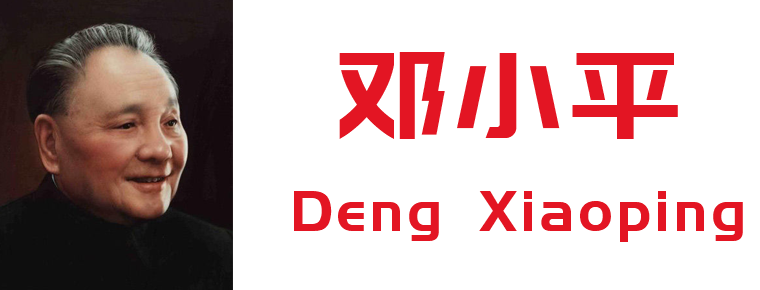
-
Town God TempleChenghuang Temple
Located in Shanghai's Huangpu District Fang Bang Road.
Views: 153 Time 2018-10-12 -
Fish egg powder
Fish egg powder was originally a food in Chaozhou. It began to spread to Guangzhou in the Guangxu period. Today, the operation of Chaozhou.
Views: 219 Time 2018-11-14 -
Taoranting Park
Taoranting Park, located on the northwest side of Taoranqiao in the South Second Ring of Beijing, is a new modern urban garden, which integrates ancient and modern gardening arts and focuses on highli.
Views: 130 Time 2019-02-13 -
Black Tea Production Techniques
Black tea, originally known as "Border Tea", was smuggled across the border by merchants as early as the end of the 16th century. In the Ming Dynasty, black tea was designated as.
Views: 113 Time 2019-05-03 -
Lanzhou drum
Lanzhou Drum, also known as Lanzhou Drum Ci and Lanzhou Quzi, is a popular folk form in Lanzhou area and one of the ancient Chinese Quyi. Lanzhou drum is a form of music art mainly composed of sitting.
Views: 185 Time 2019-05-10 -
Mira Gahei Mile La Ga Hei
Mira Gahei, Dongxiang folk tale. Also known as "Moonlight Mirror". Among the Dongxiang people, there are also poem-style stories of "Mira'er Hei", which are intermingled in rhyme a.
Views: 104 Time 2019-06-04 -
24 solar terms of the lunar calendar
Twenty-four solar terms is a supplementary calendar that absorbs the "twenty-four solar terms" of the Ganzhi calendar to guide agriculture. It is the accumulation of long-term experience and.
Views: 169 Time 2019-06-08 -
Pucheng Folk Song
Shaanxi folk song is the continuous interaction, integration, creation, development and transmission of various artistic forms among the working people in the production practice and social practice o.
Views: 152 Time 2019-06-09 -
Saban Festival of the Tatar Nationality
The Saban Festival (also known as Ploughshare Festival) of the Tatar Nationality is a unique traditional festival of the Tatar Nationality. Every year, after the spring sowing of all the farmers in th.
Views: 169 Time 2019-06-18 -
Legend of the Temple of Heaven
On May 18, 2010, the Ministry of Culture of China announced the third batch of national intangible cultural heritage list of recommended projects (new entries). The first item in the category of folk .
Views: 137 Time 2019-06-21 -
Zhaohua ancient city
Zhaohua ancient city is located in Zhaohua Town, Zhaohua District, Guangyuan City, Sichuan Province. After that, Zhaochang county was renamed as Yichang county. Located at the confluence of Bailong River, Jialing River and Qingjiang River, the Jialing River flows here with Wancheng water system and natural Taiji. It has the reputation of "the world's first landscape Taiji" natural wonder..
Views: 128 Time 2020-11-08 -
Dispute on the meaning of Cheongsam
Under the influence of the Qing Dynasty's Qiren's robes, women's gowns have been referred to as cheongsam since the Republic of China. Due to the influence of the environment at that time, most people know that the women of the Manchu and Qing Dynasty had their own cheongsam,.
Views: 120 Time 2020-12-11
